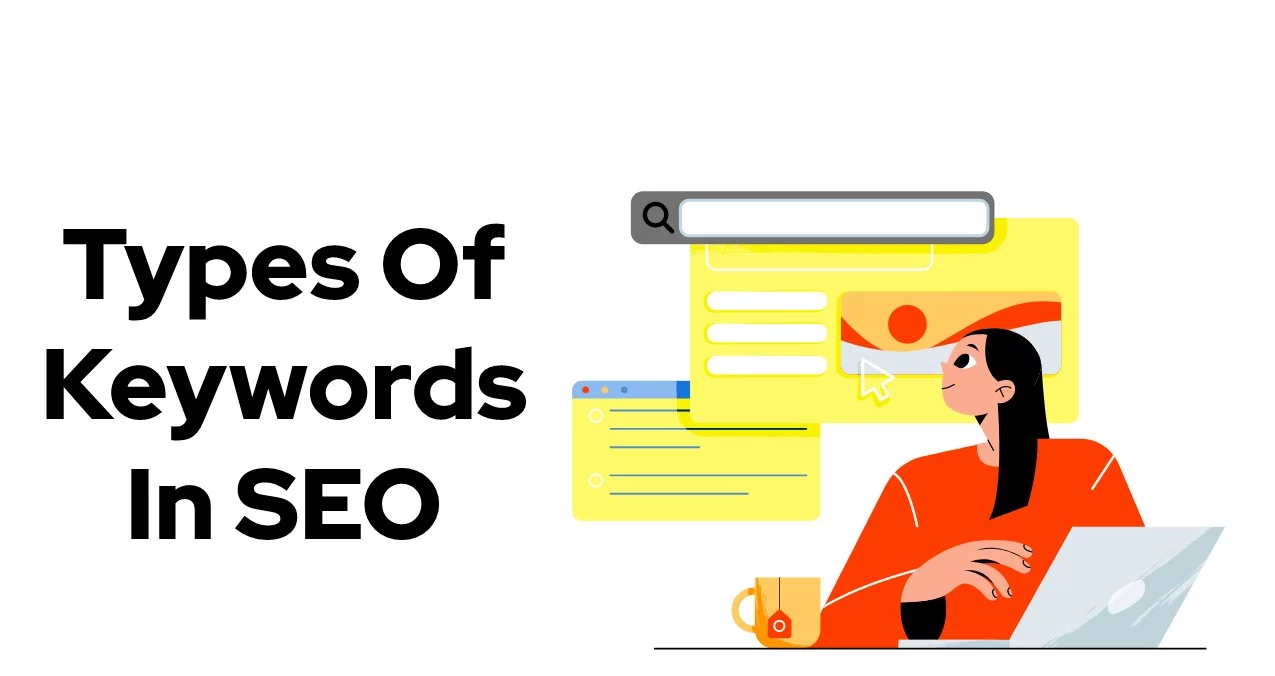Types Of Keywords: Turning Phrases Into SEO Gold

Keywords are the foundation of any SEO strategy. They are the words and phrases that people use to search for information online. By understanding the different types of keywords, you can create content that is more likely to be found by your target audience.
What are keywords?
Keywords are the words and phrases that people use to search for information online. They are the foundation of any SEO strategy. When someone searches for information on a search engine, they enter a keyword or phrase into the search bar. The search engine then returns a list of results that are relevant to the keyword or phrase.
For example, if someone searches for “how to make pizza,” the search engine will return results for websites that contain information on how to make pizza. These websites may include recipes, step-by-step instructions, or videos.
Different Types of Keywords
There are many different types of keywords, each with its unique benefits and drawbacks. Here are some of the most common types of keywords:
There are Four Main Types of Keywords
- Brand keywords: are keywords that include a specific brand name or product name. For example, "Nike shoes" is a brand keyword. Brand keywords can be useful for driving traffic to your website from people who are already familiar with your brand.
- Commercial keywords: are keywords that indicate a buying intent. For example, "buy shoes" is a commercial keyword. Commercial keywords can be useful for attracting traffic from people who are ready to make a purchase.
- Navigation keywords: are keywords that are used to navigate a website. For example, "home" or "about us" are navigation keywords. Navigation keywords are important for creating a user-friendly website.
- Intent keywords: are keywords that indicate the purpose of a search. They can be either short-tail or long-tail. For example, the keyword "buy shoes" is intent.
Most Common Types of Keywords
- Short-tail keywords: are one to two words long. They are the most competitive type of keyword, but they also have the potential to reach a large audience. For example, t
- Long-tail keywords: are three words or longer. They are less competitive than short-tail keywords, but they also have a smaller potential audience. For example, "best running shoes for women" is a long-tail keyword.
- Negative keywords: are keywords that you don't want your website to be associated with. For example, if you sell shoes, you might want to add the negative keyword "free" to your keyword list so that your website doesn't appear in search results for queries like "free shoes."
- Question keywords: are keywords that are phrased as questions. For example, "how to lose weight" is a question keyword. Question keywords can be a great way to attract targeted traffic from people who are looking for information.
- LSI keywords: are related to the main keyword you are targeting. For example, if you are targeting the keyword "running shoes," some LSI keywords might include "athletic shoes," "sneakers," or "trainers." LSI keywords can help to improve your search engine ranking for the main keyword.
Which Type of Keyword is Right for You?
The answer depends on your specific goals. If you are looking to reach a large audience, then you should focus on short-tail keywords. However, if you are looking to target a specific niche, then you should focus on long-tail keywords.
To select the best keywords that match your search intent, you need to use effective keyword research methods. These methods help you analyze factors like search volume, competition, and user behavior to ensure your keywords attract the right audience.
Top Tips for Choosing the Right Ones
- Do Your Research: Use a keyword research tool to find out how many people are searching for your keywords and how competitive they are.
- Consider Your Target Audience: What are the words and phrases that your target audience is likely to use when searching for information?
- Use a Variety of Keywords: Don't just focus on one or two keywords. Use a variety of keywords to reach a wider audience.
Bonus Tip: Like any powerful spell, keywords need maintenance. Regularly revisit your keywords using keyword research tools to ensure they continue to resonate with your audience and the ever-evolving search landscape.
Using Keywords in Your Content
Once you have chosen your keywords, you must use them in your content. Here are some tips for using keywords effectively:
- Use Them Naturally: Don't just stuff your content with keywords. Use them in a way that is natural and informative.
- Vary Your Keyword Usage: Don't use the same keyword over and over again. Use a variety of keywords to keep your content interesting and informative.
- Place Them Strategically: Use your keywords in important places in your content, such as in your title, meta description, and throughout your body copy.
Bonus Tip: Remember, search engines can sniff out keyword abuse! Focus on creating quality content with natural keyword integration, and you’ll attract both humans and algorithms.
Some Additional Tips for Using Keywords in Your Content
- Use Your Keywords in the Title of Your Page or Post: The title is one of the most important places to use your keywords, as it is the first thing that people will see when they find your content in search results.
- Use Your Keywords in the meta description of Your Page or Post: The meta description briefly describes your content that appears in search results. It is a good idea to include your keywords in the meta description to help people understand what your content is about.
- Use Your Keywords Throughout Your Body Copy: Don't just stuff your keywords at the beginning or end of your content. Use them throughout your content in a natural and informative way.
- Use Your Keywords in Your Images: You can add your keywords to the alt text of your images. This will help search engines understand what your images are about.
- Use Your Keywords in Your Links: When you link to other pages or websites, use your keywords in the anchor text of your links. This will help search engines understand the relationship between your pages and the pages you are linking to.
Remember, keyword magic is about balance and intention. Use them wisely, and your content will shine, attracting both human eyes and algorithmic favor.
Conclusion
Keywords are the key to connecting with your audience online. By understanding the different types of keywords and how to use them effectively, you can create content that is more likely to be found by the people who are looking for it.

Author
-

We are a digital marketing agency with over 17 years of experience and a proven track record of helping businesses succeed. Our expertise spans businesses of all sizes, enabling them to grow their online presence and connect with new customers effectively.
View all posts
In addition to offering services like consulting, SEO, social media marketing, web design, and web development, we pride ourselves on conducting thorough research on top companies and various industries. We compile this research into actionable insights and share it with our readers, providing valuable information in one convenient place rather than requiring them to visit multiple websites.
As a team of passionate and experienced digital marketers, we are committed to helping businesses thrive and empowering our readers with knowledge and strategies for success.




